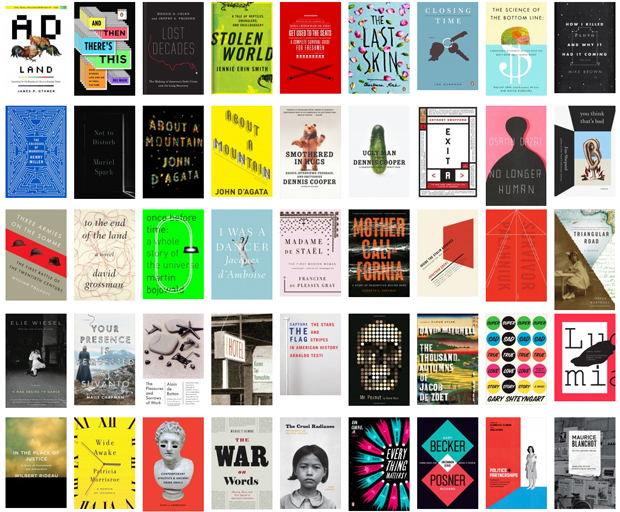So I got this question via email, and I will attempt to answer it here to the best of my knowledge, which is a hodgepodge of 8 years of marketing experience, reading a bunch of Seth Godin's books, reading a ton of novels in general (and their titles, of course) and 1.5 years of writing full time (hey, next May it will be 2!). Oh, and self-publishing since last year, so not much, if you look at it. Anyway. Here we go:
Question: "A big one that has been troubling me and that I've been getting asked quite a bit: when is it time to choose a title? I have not come up with one and I get the impression from some people that I should have one picked out already."
Choose the title right away. It will change itself if it needs to. I struggled with picking out the title for SIREN SUICIDES (my fist trilogy, a lab rabbit of sorts). I had to name it something, for the sake of naming the Word file, and I kept coming up with these temporary titles, like ALICE GONE BAD and AILEN and AILEN'S SONG and FISHY and whatever else. I kept shifting titles as I changed drafts, to the point of where I got obsessed with the idea of finding the perfect title, and then I suddenly found myself focused on the titles too much, more than on a story itself. The funny part was, people would ask me, what's your novel about? And I'd say, it's about suicide. They'd be like, wow, that's dark! And I'd be like, not exactly, it's actually a fantasy about sirens. The funny thing about this story is that I failed to see what I have read in every marketing book and even applied to my businesses (back when I was still doing start-ups). I failed to see the clear thing, which is, name your product what it is. If you won't, your customers will do it themselves. I was like, wait a minute, this is about suicide and sirens, so, bingo! SIREN SUICIDES was born. Having gone through this pain once, I am now using a much simpler approach to all my future novels. I just name them after the first thing that comes to mind when I imagine the opening scene. I don't plan my novels, I write them from this one initial image, and for ROSEHEAD it was, well, rosehead, which is a type of nail with the head looking like a rose, a perfect name for the main character, a stubborn girl. Same goes for IRKADURA which I haven't even written yet, and for PAGE TURNER, for which I don't even have a page setup on my site yet. So, yes, name it right away. It will change if it needs to, as you start talking about it.
Title your novel something that makes you emotional. This is your story you're writing, and you're writing it for some reason, right? For some reason you want people to hear it, for some reason it is important to you. Well, then your title should reflect that, and it doesn't have to perfect, it just has to be right for you. Based on this, when you start writing your novel, you already know why you're writing it. It's not exactly factual knowledge, it's a feeling that you feel. It's very strong. The title should reflect that. You don't need to finish your novel to know what it will be called. Yes, it can change in the course of you writing it, but so what? Rename it. Here is one more reason why you should title your novel right away. Nowadays, regardless of the fact whether or not you are self- or traditionally published, you have to start marketing your novel before it's published, to get everyone trembling with anticipation. And how exactly can you do this if you don't know what your novel is titled as? You can't. Bingo. I wrote a whole post on naming your novel . You can refer to it as a guide, but please remember, no matter what I say in there, it has to feel right to you, and if a longer title or a shorter title feels better, do it. For example, look at THE OCEAN AT THE END OF THE LANE by Neil Gaiman or EXTREMELY LOUD AND INCREDIBLY CLOSE by Jonathan Safran Foer. Two super long titles, right? So what? Who cares? If they could do it (getting published through big publishing houses, no less), you can do it. Title it now.
Summarize your novel in the title. Okay, now you will call me crazy, and I totally get why. I have blogged about summarizing your whole novel in your first paragraph. Heck, I even try to summarize the whole novel in the first sentence, like Stephen King did for the entire The Dark Tower series: "The man in black fled across the desert, and the gunslinger followed." I will go even further here. Use the novel title as the summary for the whole bloody thing. I mean, think about your name. It's like a summary of you, it means YOU to you. Well, a novel is kind of like a living being on its own, and you have to name it in such a way so that other people will immediately grasp it, will instinctively know what it is about, or if not know, then at least have an idea. Again, because I pick out the single image I start writing my novel from, I pick the title there and then. In my case, the title helps me stay focused. Even titling chapters helps me stay focused. But hey, it might not be right for you. I know a ton of writers who feel the title of their novel come to them in the process of writing. Some even refuse to title it anything until they're done, so please take this with a grain of salt. Try it on. Works for you? Great. Doesn't work for you? Toss it, and try something else.
Oh, and I will write the next blog post on the curious topic of HOW TO WRITE A BAD BOOK. It will be a hoot. Feel free to suggest topics here in the comments.






